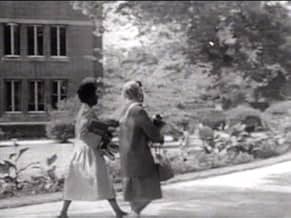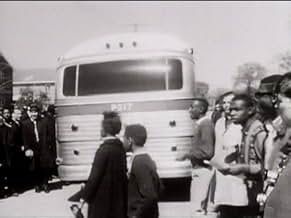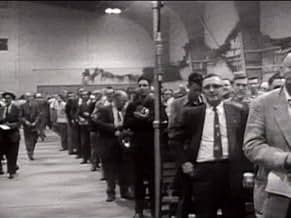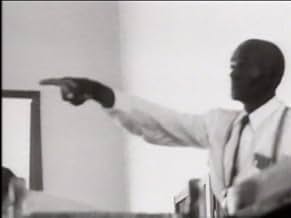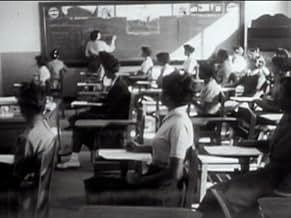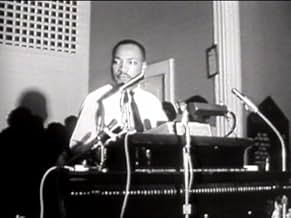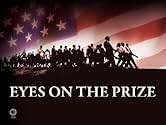Eyes on the Prize III: We Who Believe in Freedom Cannot Rest
Original title: Eyes on the Prize
IMDb RATING
9.1/10
881
YOUR RATING
A propulsive narrative chronicling the fight for racial justice in America, from Obama's election to Black Lives Matter, highlighting the heroic individuals who sparked change.A propulsive narrative chronicling the fight for racial justice in America, from Obama's election to Black Lives Matter, highlighting the heroic individuals who sparked change.A propulsive narrative chronicling the fight for racial justice in America, from Obama's election to Black Lives Matter, highlighting the heroic individuals who sparked change.
- Nominated for 1 Oscar
- 11 wins & 8 nominations total
Browse episodes
9.1881
1
2
3
4
5
6
7
8
9
10
Featured reviews
Copyright Issues
The "Trivia" listing for this says that it is no longer being shown due to copyright issues, I am happy to report that they have all been resolved and it is playing on PBS again. The is a really great series and is currently being considered for inclusion in an upcoming series of community screenings and discussions sponsored by Filmmakers Collaborative, called Tracking the American Dream. This will examine the concept of economic upward mobility and the problems of this historical belief and the idea that anyone can grow up to become whatever one wants. It will focus on how mainstream images of the "ideal American life" shifted during various decades of the twentieth century.
10cbigby
Eyes On The Prize
I've seen the original series several times and was taken along for an emotional and intellectual journey on "modern-day" beginnings of the Civil Rights Movement. There is no way I could conceive anyone but a strident racist could not be moved by the sheer simplicity of using the churches as the center to motivate and rally black people. Dr. King is shown as a young minister developing his oratory and the narration is intense. I would have to say that my favorite segment is the at first calm eulogy offered during the funeral following the death of a marcher that becomes angered at the seeming wantoness of murder. It was so impassioned it made me guilty for not being more involved in the Movement as a teen. Buy and watch the series. It will be among the best things you will ever do!
A great mini-series.
"Eyes on the Prize" is an amazingly good and very thorough series about the civil rights movement in America from 1954-1965. While lots of shows have been made about this over the years, this one is the one to watch because of its length and breadth. Now I am not saying it's perfect--it could use an updating and doesn't really talk about the treatment of Black Americans before the mid-1950s and probably would have been better had it covered the late 60s...but it's still terrific. The shows are filled with lots of archival footage, interviews and nice narration. The shows are also very compelling--and well worth your time--and very educational. Great for kids and those not old enough to remember this turbulent time--a time we should all try to remember. See this one.
Overall excellent film
This series (along with the sequel, "Eyes on the Prize II") is a classic documentary that, in many ways, pointed to the techniques later adapted by Ken Burns in his documentaries. Given the availability of film and first-person accounts, as well as photos, this is a far more moving and affecting film. Beginnings are difficult, and one might quibble with how the first part brings the viewer "up to speed" on African American history before the 1950's, the immediate attention to the story of Emmitt Till makes up for much of that missing narrative, by showing in graphic detail the status of African Americans in the United States, particularly the deep South. The rest of the series fills in a great amount of detail in the ensuing decade up to 1965 and the Voter-Rights act of that year.
Three things to point out in detail that made this a strong film. First, the framing of the narrative before Brown v. Board to emphasize that the Brown case did not come about in isolation, but as part of a broader strategy of the NAACP (if you are further interested in this, you should look at "The Road to Brown") led by Charles Houston and Thurgood Marshall. Second, the film did not solely rely on newsreel footage and interviews, but effectively used still photos to convey drama and set pacing. On that last issue, the third point (which may have been for cost and copyright reasons for all I know) was the minimal use of music in the film. Some of the most powerful moments in the film come from a long (4-5 seconds) shot of a dramatic photo with only silence.
Why only 9 stars and not 10? I would like to have seen a bit more in the lead up to the 1950's, and some emphasis on larger context of the Cold War and such -- particularly a bit more on radical African Americans who were targeted by the state for prosecution before the forties, as well as more on the legacies of W.E.B. Dubois and Booker T. Washington as backdrop for later debates within the movement. These are really historical concerns, and overall, the film is worth seeing. I hope that soon the copyright issues will be sorted out so that this can be released on DVD, as many video copies available now are showing their age after many viewings!
Three things to point out in detail that made this a strong film. First, the framing of the narrative before Brown v. Board to emphasize that the Brown case did not come about in isolation, but as part of a broader strategy of the NAACP (if you are further interested in this, you should look at "The Road to Brown") led by Charles Houston and Thurgood Marshall. Second, the film did not solely rely on newsreel footage and interviews, but effectively used still photos to convey drama and set pacing. On that last issue, the third point (which may have been for cost and copyright reasons for all I know) was the minimal use of music in the film. Some of the most powerful moments in the film come from a long (4-5 seconds) shot of a dramatic photo with only silence.
Why only 9 stars and not 10? I would like to have seen a bit more in the lead up to the 1950's, and some emphasis on larger context of the Cold War and such -- particularly a bit more on radical African Americans who were targeted by the state for prosecution before the forties, as well as more on the legacies of W.E.B. Dubois and Booker T. Washington as backdrop for later debates within the movement. These are really historical concerns, and overall, the film is worth seeing. I hope that soon the copyright issues will be sorted out so that this can be released on DVD, as many video copies available now are showing their age after many viewings!
Truth will move us forward
Excellent and absolutely necessary film for anyone interested in politics and history of the United States of America. Lies are exposed, truth is said, and tears on your face are there as a sign of respect for all those who have dedicated their lives to the fight against this evil empire.
You will not feel hopeless and depressed after watching this film, as is the case with some documentaries. It empowers you, makes you believe that this war between the masters and the slaves will be won, and one day there will be a true slave-less society.
However, if you are easily offended by the people who don't share your exact world view than you should not watch this.
You will not feel hopeless and depressed after watching this film, as is the case with some documentaries. It empowers you, makes you believe that this war between the masters and the slaves will be won, and one day there will be a true slave-less society.
However, if you are easily offended by the people who don't share your exact world view than you should not watch this.
Did you know
- TriviaThe series was unavailable from 1995 to 2006 owing to copyright issues. Licenses for "Happy Birthday", news footage, various photographs, songs, and lyrics used in the film expired in 1995, and the film company Blackside could not afford to renew these licenses. A grant from the Ford Foundation enabled them to renew the licenses. The series was rebroadcast and released to DVD in October 2006.
Details
- Runtime
- 1h(60 min)
- Color
Contribute to this page
Suggest an edit or add missing content


